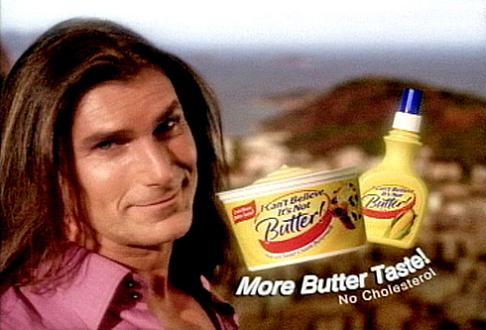
I first discovered Matthew Albanese’s work through my friend JohnnyCat, an author/editor for the newly-designed Neatorama. Matthew creates incredibly detailed miniature-scale model landscapes and then uses a camera technique known as forced perspective to create super-realistic photographs you swear were real!
If you can’t believe it’s not butter, you won’t believe these aren’t real until you see the set-up pictures that follow. Enjoy Matthew Albanese’s ‘Strange Worlds’ series:

“Salt Water Falls” model made out of glass, plexiglass, tile grout, moss, twigs, salt, painted canvas & dry ice. The waterfall was created from a time exposure of falling table salt

Tornado made of steel wool, cotton, ground parsley and moss
In Matthew’s Words:
My work involves the construction of small-scale meticulously detailed models using various materials and objects to create emotive landscapes. Every aspect from the construction to the lighting of the final model is painstakingly pre-planned using methods which force the viewers perspective when photographed from a specific angle. Using a mixture of photographic techniques such as scale, depth of field, white balance and lighting I am able to drastically alter the appearance of my materials. For images documenting how these works are made see my facebook fan page Matthew Albanese. All works are currently available for acquisition.


Paprika Mars: Made out of 12 pounds paprika, cinnamon, nutmeg, chili powder and charcoal. Mars was Matthew’s first model he made in this series

Aurora Borealis: This was made by photographing a beam of colored light against a black curtain to achieve the edge effect. The trees were composited from life (so far the only real life element in any of these images). The stars are simply strobe light through holes in cork board.

Fields, After the Storm: This model is made out of faux fur (fields), cotton (clouds) and sifted tile grout (mountains). The perspective is forced, and the lighting effect was created by simply shifting the white balance.

WHAT IS FORCED PERSPECTIVE?
Forced perspective is a technique that employs optical illusion to make an object appear farther away, closer, larger or smaller than it actually is. It is used primarily in photography, filmmaking and architecture. It manipulates human visual perception through the use of scaled objects and the correlation between them and the vantage point of the spectator or camera. – Wikipedia

Photograph courtesy of Wikimedia Commons
In this example of forced perspective, the CH-47 Chinook helicopter above is more than eighteen feet tall and almost one hundred feet long.

Burning Room: Made of wood, nylon, plexiglass, purchased dollhouse furniture. The model was actually set on fire to achieve this effect.


This is a mixture of many different materials; tile grout, moss, bottle brushes (pine trees), actual clippings from the ground, and built on top of a standard outdoor patio table (water glass). The sky is canvas painted blue. Coloring was achieved by shifting white balance.


Breaking Point: The Volcano is made out of tile grout, cotton, and phosphorous ink. It was illuminated from within by 6-60 watt light bulbs.
HOW DID HE DO THAT?



Oh Hai Matthew!
You can find Matthew Albanese online at the following places:
– Facebook Fan Page
– On Behance
– LinkedIn



SOURCES
– First spotted on Neatorama
– Photographs on Behance
– More Photographs on Behance
– Forced Perspective Wikipedia Entry



If you enjoyed this article, the Sifter highly recommends: What is Tilt-Shift Photography?






